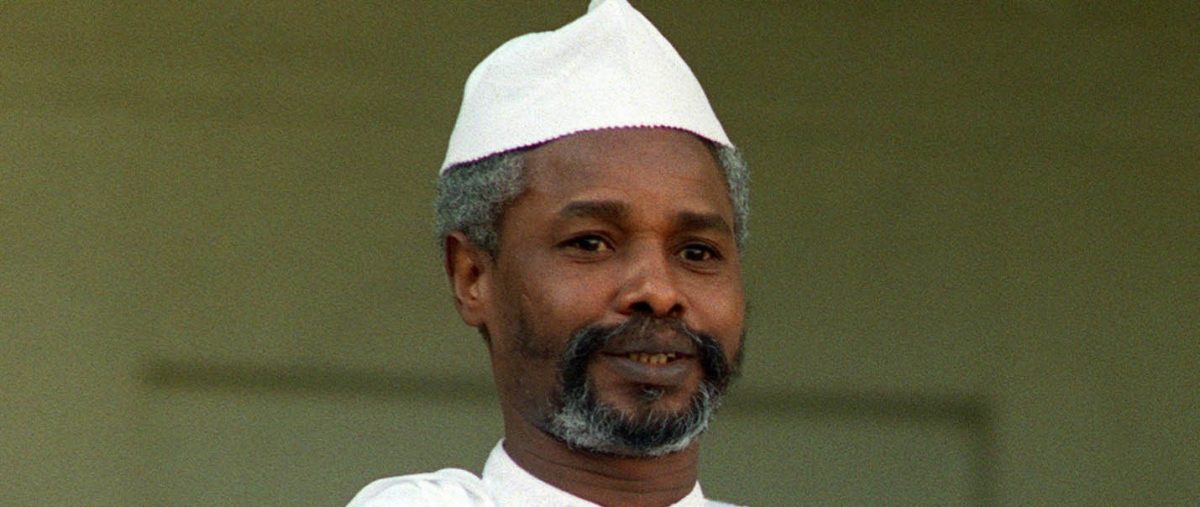DAKAR, (Reuters) – Hissene Habre, the former strongman president of Chad and security ally of the West during the Cold War who was later jailed for war crimes, died yesterday in Senegal at the age of 79, Senegal’s justice minister said.
Habre contracted COVID-19 at a clinic in the capital Dakar where he was taken 10 days ago from jail for medical reasons, Justice Minister Malick Sall, told Reuters. When his condition worsened, he was taken to Principal Hospital, where he died.
Habre’s 1982-90 rule, which began with a coup, saw widespread killings by his infamous political police who rounded up suspects and held them in secret detention centres. In eight years, tens of thousands were raped, tortured and killed.
After a landmark trial in Senegal, where he fled after being chased out of office by Sudan-based forces, Habre was sentenced to life in prison in 2016 for rape and ordering the killing and torture of thousands of political opponents.
The verdict was seen by rights groups as a watershed moment in African justice: it marked the first time in modern history that one country’s domestic courts have prosecuted the former leader of another country for crimes against humanity.
It also capped a 16-year battle by victims and rights campaigners to bring the former Chadian autocrat to justice.
“Hissene Habre will go down in history as one of the world’s most pitiless dictators,” said Reed Brody of the International Commission of Jurists, who has worked with Habre’s victims since 1999.
“(He was) a man who slaughtered his own people, burned down entire villages, sent women to serve as sexual slaves for his troops and built clandestine dungeons to inflict medieval torture on his enemies.”
Habre denied his role in the killings and remained defiant. At the start of his trial in 2015, he had to be carried into court in his long white robes, and restrained by masked security guards. He shouted “Shut up! Shut up!” when the clerk read out his indictment.
The United States and France supported Habre during his rule over the desert nation in central Africa, fearful of the expansionist designs of neighbouring Libya’s Muammar Gaddafi, whose troops occupied an area of northern Chad.
That support waned as Habre faced growing resistance from armed groups, including his eventual successor Idriss Deby, who attacked from neighbouring Sudan.
Even so, today he still has defenders in Chad. He was a “fair and honest statesmen who fought against corruption…and knew how to defend the integrity of Chadian territory in the face of external aggression,” said Ali Younouss Mahamat, a 30-year-old teacher in the capital N’Djamena.
Western powers have “repainted his regime in black to erase all traces of his patriotic works”.
LONG ROAD TO JUSTICE
There were times where it seemed Habre, a herder’s son, would never pay for his crimes. Only the tenacity of his victims, and of human rights campaigners, kept hope alive.
Souleymane Guengueng, a civil servant, spent two-and-a-half years in a Chad jail in the 1980s where he watched inmates die from torture and disease. He vowed to fight for justice for those who had died.
In 2000, Guengueng and a group of victims filed a complaint against Habre in Senegal and a court charged him with torture and crimes against humanity. But an appeals court ruled he could not be tried in that West African country.
After another group of victims came forward in Belgium, the country issued an international arrest warrant in 2005 holding Habre responsible for mass murder and torture.
Senegal declined to extradite Habre and the African Union asked it to pass legislation giving its courts jurisdiction for foreign crimes.
It was not until Senegal President Macky Sall took office in 2012 that the process accelerated. In 2013, the Extraordinary African Tribunal was created and Habre was arrested.
In April 2017 an appeals court ordered Habre to pay the victims approximately 123 million Euros ($145 million) in compensation, but the sum was never paid.
Guengueng told Reuters he was “very, very sad” about Habre’s death. “I feel a lot of Habre’s victims will get the same impression, because he was not long in prison and the victims still haven’t received reparations.”






